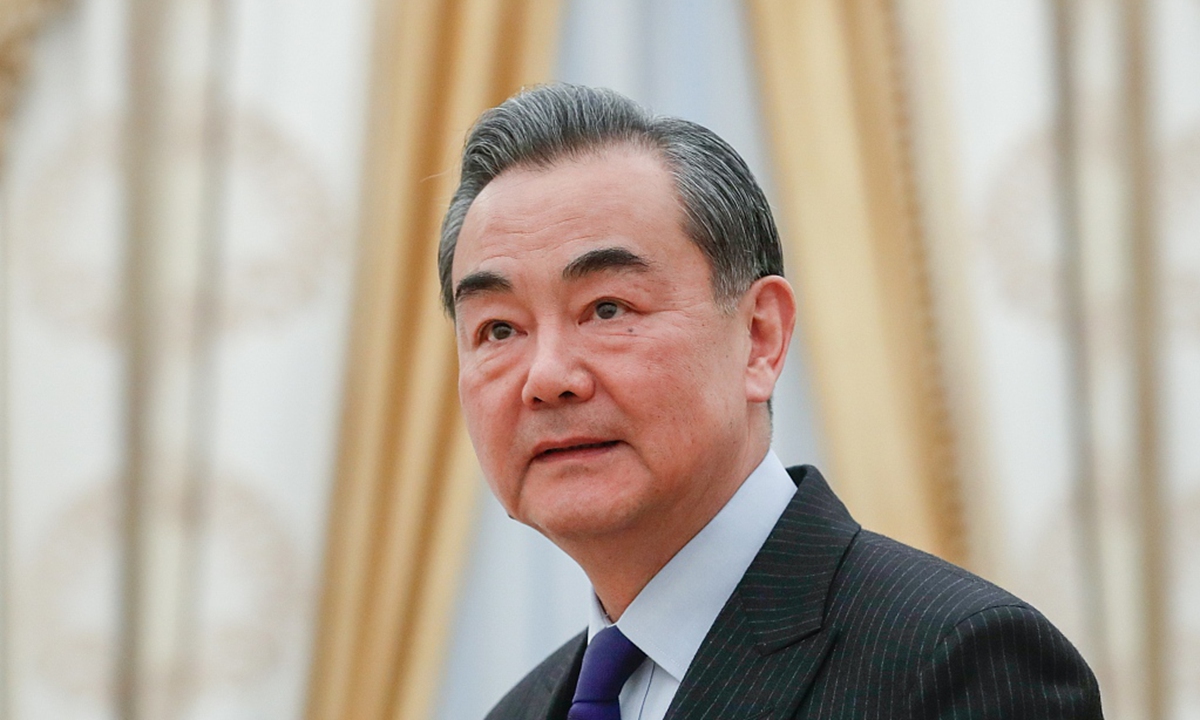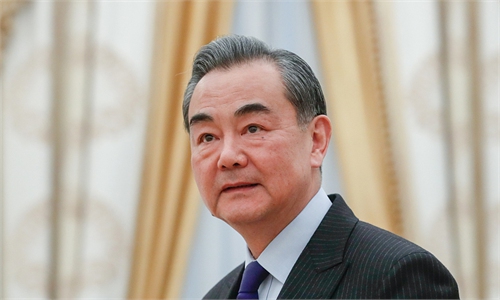
Chinese State Councilor and Foreign Minister Wang Yi. Photo: VCG
Chinese State Councilor and Foreign Minister Wang Yi last week visited Pakistan, Afghanistan, India, and Nepal, all of which are China's neighboring countries.
Some suggest that Wang's visit is out of "Beijing's fears of diplomatic isolation" amid the Russia-Ukraine conflict. In regard to the crisis, many of China's neighboring countries, including those in South Asia, take a stance that is quite similar to China's. This proves that China and its neighboring countries can find common ground on some major global issues.
However, Wang's trip goes way beyond the impact of the Ukraine crisis. It mainly aims to promote China's neighborhood diplomacy and solve some regional issues, especially with India and Nepal. This shows that China still attaches great importance to its neighbors, and neighborhood diplomacy should continue to be Beijing's key focus in the future.
The US is provoking conflicts all over the world, including China's neighborhood, where Washington mainly targets Beijing. For example, in South Asian region, the US has tried to rope India into the anti-China mechanism and lure Nepal into the Millennium Challenge Corporation, an infrastructure aid deal to hedge against the China-proposed Belt and Road Initiative.
But South Asia doesn't actually take an extremely significant position in the US' new global strategy. Washington now believes that Beijing has taken the opportunity to increasingly turn the region into its "sphere of influence" because of the former's lack of attention in the past. Since the US now devotes serious attention to China, the importance of South Asian countries has also increased.
Moreover, the US has somewhat achieved its desired goal of turning some of China's neighbors against it without investing too many resources. This has encouraged Washington, making it believe it can contend with Beijing.
Therefore, the US will mobilize more resources and be more active in an attempt to infiltrate what it sees as China's "sphere of influence."
China has no intention to become another Soviet Union of the Cold War era. This is not in China's development policy. However, the US regards China as such. As long as China has any new initiative anywhere in the world, the US will immediately come out to obstruct or demonize it. This is a new challenge China's diplomacy faces at present.
China's neighbors all have certain expectations for cooperation, and these expectations are planned around their own interests. Therefore, due to the obvious competition between the US and China, most of China's neighbors are reluctant to choose a side in the conflict between China and the US. They believe they may benefit from both if the two major powers are in conflict with one another.
China's neighborhood diplomacy should adopt a more active posture. In other words, China should continue to act as a responsible country, strive to further expand regional cooperation, implement cooperation with other countries, and let neighboring countries feel the substantial benefits of cooperation. In contrast, neighboring countries can clearly see that the commitments made by the US to other countries only bring limited benefits, or even turbulence.
In the process of China's rapid rise and development, what kind of foreign policy China pursues is of great significance. As a world power, China is taking on more and more responsibilities. From this perspective, China will pay more attention to the interaction with other countries and with the international community. China has been doing well so far. Through this kind of cooperation, China has not only found opportunities for its development but also brought development opportunities for other countries. What China has done is in line with the principles of justice and is in the best interests of itself and neighboring countries.
The article was compiled by Global Times reporter Xia Wenxin based on an interview with Zhao Gancheng, director of the Center for Asia-Pacific Studies at the Shanghai Institute for International Studies. opinion@globaltimes.com.cn

